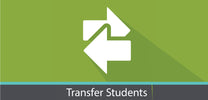In celebration of National Distance Learning Week, it’s essential to recognize the strides made in online education to address the unique challenges of distance learners. Two institutions—Prince George’s Community College (PGCC) and Merced College—are at the forefront of these efforts. Through innovative digital learning platforms and tailored student support programs, PGCC’s Lindsey Barclay and Merced College’s Dondi Lawrence are leading initiatives to enhance digital literacy, onboarding, and student engagement, ensuring students from diverse backgrounds have the support they need to succeed.
Understanding The Challenges Faced By Online Learners
The shift to online learning offers flexibility but presents unique challenges, especially for first-generation and nontraditional students. Barclay and Lawrence have identified specific hurdles their students face, which include:
- Limited Digital Literacy & Fluency: Many students are unfamiliar with learning management systems (LMS) like Canvas. While students may be skilled with basic digital tools, they often lack experience with academic applications, such as using AI tools ethically or navigating advanced platforms.
- Time Management & Self-Discipline: Online learning demands time management and self-discipline, especially for students balancing family or work commitments. This self-paced environment can be challenging, and some students struggle to prioritize academic responsibilities.
- Misunderstandings About Course Modalities: The variety of online formats—hybrid, structured remote, and fully online—adds complexity. Many students are unclear about what each format entails, leading to confusion if their initial understanding doesn’t match course expectations.
- Feeling Isolated From Campus Resources: Online students may feel disconnected from on-campus resources, such as tutoring, advising, and tech support, leaving them without the assistance they need to succeed.
- Language & Accessibility Barriers: Merced College has a high percentage of Hispanic and Latinx students. To ensure inclusivity, Lawrence’s team offers language translation options (Spanish, Hmong, Chinese, and Punjabi), enabling more students to access vital information in their preferred language.
How PGCC & Merced College Are Supporting Their Online Learners
Barclay and Lawrence have implemented scalable support systems to address these challenges. By focusing on digital literacy training, personalized onboarding, and engagement strategies, both institutions are setting new standards for online student support.
1. Developing a Customized Onboarding Experience
PGCC uses OnlineLingo’s virtual orientation, “E-Learning SmartStart,” a 40-minute interactive session that familiarizes students with course formats, essential technology, and available resources, preparing them for online classes.
Merced College employs Go2Orientation as an onboarding tool, funded through a federal grant, to support its online students. Go2Orientation provides overviews of LMS tools, advising services, and other essential resources, helping students feel prepared for digital learning.
2. Implementing Interactive & Dynamic Learning Tools
Both institutions leverage interactive tools to make learning more engaging. Flip cards, videos, quizzes, and interactive modules within the OnlineLingo and Go2Orientation platforms encourage active engagement, making the content more memorable and impactful.
To boost ongoing engagement, Barclay developed a commercial-style video promoting SmartStart and reminding students about available resources. Such initiatives create multiple touchpoints with students, reinforcing key information and helping them stay connected to the college community.
3. Bridging The Gap Between Orientation & Onboarding
A key insight from Barclay and Lawrence’s work is distinguishing between orientation and onboarding. While orientation offers initial guidance on accessing schedules or passwords, onboarding is a longer-term process that helps students navigate academic expectations, connect with advisors, and access resources like tutoring.
Both institutions have also embedded mechanisms that encourage students to return to the platform throughout the semester. For example, student success workshops on time management and goal setting help students become more self-sufficient while providing tools to develop essential academic and life skills.
4. Supporting Digital Literacy & Fluency
Lawrence emphasizes the importance of both digital literacy (basic software and browsing skills) and digital fluency (using digital tools effectively). Merced College’s workshops help students understand LMS features and advanced tools like AI for academic research, ensuring they’re prepared for digital demands.
Both PGCC and Merced College provide ongoing technology support through online hubs that students can revisit for guidance on navigating the digital environment, reinforcing their learning as needed.
5. Fostering A Sense Of Community & Connection
Recognizing that isolation can lead to disengagement, both PGCC and Merced College prioritize community-building among online students. By connecting students to mentors, offering digital literacy workshops, and facilitating faculty check-ins through messaging platforms, they foster a sense of belonging.
Through community-building features within their platforms, students find support and resources without feeling disconnected, ultimately enhancing retention and persistence in online programs.
6. Conducting Needs-Based Surveys For Proactive Support
Surveys play a critical role in understanding and addressing student needs. PGCC and Merced College use surveys to gather insights and proactively connect students with resources. Based on responses, students receive tailored guidance, creating a seamless experience that helps them overcome academic and personal challenges.
Conclusion: Promoting Student Success Through Tailored Digital Support
As we celebrate National Distance Learning Week, PGCC and Merced College’s efforts to support online learners through customized onboarding, digital literacy, and community engagement are inspiring. Barclay and Lawrence have created models that empower students to overcome online learning challenges.
By using tools like OnlineLingo and Go2Orientation, these colleges provide students with a solid foundation, enabling them to succeed academically and connect within their digital learning communities. Their work underscores the importance of tailored online support in achieving equitable access and fostering student success in higher education. As distance learning expands, initiatives like these demonstrate how to build inclusive, empowering online learning environments.
For those interested in learning more, you can access the full session in the complimentary webinar “5 Steps to Digital Fluency: Supporting & Preparing Online Learners,” now available on demand.
By Meg Foster, Online Learning & Design Specialist - Consultant: Wendy Archer, Web Content Coordinator
November 6, 2024



Comments 0